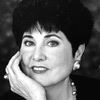 Benita Valente will give a vocal master class on standard operatic arias. The distinguished American soprano Benita Valente began serious musical training with Chester Hayden at Delano High School. At 17, she became a student of Lotte Lehmann at the Music Academy of the West in Santa Barbara, where she got her initial professional music experience. In 1955 she won a scholarship to the Curtis Institute of Music in Philadelphia, where she studied with Marcel Singher. While a student at Curtis she began her summer studies at the Marlboro Music School. At Marlboro Festival she performed with Rudolf Serkin, Felix Galimir and Harold Wright. In October 1960 she made her New York concert debut at the New School for Social Research. After winning the Metropolitan Opera Auditions in 1960, she was chosen to participate in the young artists program at the Met. In 1962, she then sang with the Freiburg im Breisgau Opera, making her debut as Pamina in Die Zauberflöte. After appearances with the Nuremberg Opera in 1966, she returned to the USA and established herself as a versatile recitalist, soloist with orchestra, and opera singer. At that point she continued vocal studies with Margaret Harshaw thought her career. She made her long-awaited Metropolitan Opera debut in New York in September 1973. Her roles at the Metropolitan Opera have also included Gilda, Nanetta, Susanna, Ilia, and Almirena. Other roles are Euridice at Santa Fe, the Countess in Le Nozze di Figaro in Washington, and Dalilah in Florence. Festival appearances include Tanglewood, Aspen, Ravinia, Grand Tetons, Santa Fe, Vienna, Edinburgh, and Lyon. Benita Valente has been especially noted for her collaborations with living composers, she has sung in many chamber music and recital performances, often in world premieres. She is one of this era's most cherished musical artists. As the soprano in residence at the prestigious Marlboro Festival her performances and recordings with the legendary pianist Rudolf Serkin won great acclaim. Other major chamber music collaborators have included the Guarneri and Juilliard and Orion String Quartets, cellist Yo-Yo Ma, clarinetist Richard Stolzman, guitarist Sharon Isbin and pianists Peter Serkin, Emmanual Ax, Leon Fleisher, Richard Goode, Malcolm Bilson and Cynthia Raim. Benita Valente has been orchestral soloist with virtually every important conductor and orchestra in the world. She has sung under the batons of Claudio Abbado, Daniel Barenboim, Bernardi, Leonard Bernstein, Comissiona, Conlon, de Waart, Eschenbach, Nikolaus Harnoncourt, Kubelik, Leinsdorf, Raymond Leppard, James Levine, Kurt Masur, Muti, Seiji Ozawa, Robert Shaw, Slatkin and Tennstedt, and with every major symphony in the USA, Canada and Europe. Benita Valente has been recorded by seventeen recording companies. She received a Grammy Award for her recording of Schoenberg's Quartet No.2 and a Grammy nomination for her recording of Haydn's Seven Last Words of Christ, both performed with The Juilliard String Quartet. Her recent recordings include music of Vaughan Williams, Debussy, and Bolcom. Benita Valente was the 1999 Recipient of Chamber Music America's Highest Award: The Richard J. Bogomolny National Service Award, the first vocalist to receive the award in its twenty-year history. Composer Daron Hagen to give a talk on Tchaikovsky's "Eugene Onegin" | Russian Opera Workshop 20141/29/2014
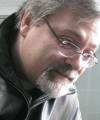 Daron Hagen is one of America's most versatile, prolific, and respected composers. All eight of his major operas are currently in production or revival somewhere in the U.S., Europe, or Asia. His orchestral, chamber, and song catalogues are frequently programmed internationally. Mr. Hagen's activities include stage direction, conducting; and engagements as a collaborative pianist, artistic director, writer, and librettist. He has collaborated with distinguished musicians such as Leonard Bernstein, JoAnn Falletta, Gary Graffman, Nathan Gunn, Jaime Laredo, David Alan Miller, Sharon Robinson, Gerard Schwarz, Leonard Slatkin, and Robert Spano, among others. His work has been widely commissioned and performed by most of North America's major musical institutions, and numerous institutions abroad, including the New York Philharmonic, Philadelphia Orchestra, National Symphony, Seattle Symphony, American Composers Orchestra, Curtis Symphony, Milwaukee Symphony, Buffalo Philharmonic, the Orchestra of the Swan (UK), Seattle Opera, Opera Theater of Ireland, as well as the Metropolitan Museum of Art, Louvre, Ullens Center for Contemporary Art (Beijing), and Royal Albert Hall. Mr. Hagen has served frequently as conductor and collaborative pianist for recordings of his works. His music can be heard on the Albany, Arsis, Bridge, Clarion, GPR, Klavier, Naxos, and New World/CRI labels, among others. In 2012, he was awarded the Guggenheim Fellowship. He has also received the Kennedy Center Friedheim Prize, two Rockefeller Foundation Bellagio Fellowships, ASCAP and BMI prizes, and the Seattle Opera Chairman's Award. A graduate of the University of Wisconsin-Madison, the Curtis Institute of Music and of the Juilliard School, he has taught at Bard College, the Curtis Institute of Music, and the Princeton Atelier, and fulfilled numerous composer-in-residencies around the U.S. He is a Lifetime Member of the Corporation of Yaddo, former President of the Lotte Lehmann Foundation, and a Trustee of the Douglas Moore Fund for American Opera. A complete list of Mr. Hagen's over 250 published art songs, song cycles, and choral works, eight operas, four symphonies, twelve concerti, and over forty chamber works may be found, along with information about upcoming performances and premieres, at his website: www.daronhagen.com. Dr. Sharon Bain, Lecturer in Russian language at the Bryn Mawr College, joins Russian Opera Workshop1/28/2014
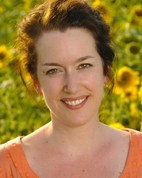 Sharon Bain teaches Russian language at Bryn Mawr College in Bryn Mawr, Pennsylvania. She received her Ph.D. from Bryn Mawr College in Second Language Acquisition in 2004, having previously studied Russian at Herzen State Pedagogical Institute in St. Petersburg and in the Russian Language Teachers Program at Moscow State University. Dr. Bain has also taught beginning and intermediate Russian at the University of Delaware and served as the Director of the Virginia Governor’s Russian Academy, a 3-week summer language program for high school students, held at Virginia Commonwealth University. In addition to teaching Russian language, Sharon Bain teaches courses on Russian and Eastern European folklore, Russian and Soviet cultural history, and Russian memoirs. She also serves as Co-Director of the Bryn Mawr Russian Flagship Program, an accelerated language-learning track designed to help students attain professional-level proficiency in Russian during their undergraduate career.  Donald St. Pierre returns to Russian Opera Workshop 2014. In previous summer programs Don helped prepare Tchaikovsky's Eugene Onegin, Iolanta and Pique Dame, and Rachmaninoff's Aleko and Francesca da Rimini. Donald St. Pierre was associated with the Skylight Opera Theatre as music director from 1978 to 1990. He conducted more than fifty productions there, from Monteverdi's Il Coronazione di Poppea to Stephen Oliver's Mario and the Magician (American premiere). He was keyboard player of the Milwaukee Symphony Orchestra until 1978. In 1986 he served as chorus master at the Vienna State Opera for Leonard Bernstein's Quiet Place (recorded by DGG and conducted by the composer). As a recital accompanist, Mr. St. Pierre has appeared at such venues as New York's Lincoln Center, London's Wigmore Hall and Almeida Theatre, and Paris's Théâtre du Châtelet, as well as at the Tanglewood, Santa Fe Chamber Music, Bowdoin, Bard, and Grand Teton music festivals. He is one of the contributing composers to the AIDS Quilt Songbook, published by Boosey & Hawkes and recorded on the Harmonia Mundi label. Mr. St. Pierre serves on the faculty of the Curtis Institute of Music. Audition Master Class by Thor Eckert, Professional Development Coach | Russian Opera Workshop1/27/2014
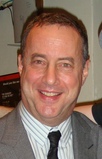 Author and opera consultant Thor Eckert has been a regular guest quizmaster on the popular Opera Quiz intermission feature of the Toll Brothers/Metropolitan Opera International Radio Network broadcasts since 1988. He was chief music critic of The Christian Science Monitor for fifteen years. In addition to his work for the Monitor, he contributed cover stories and other feature articles for such publications as Opera News, Opera, the New York Times, the Los Angeles Times, and Business Week. A former artists’ manager, Mr. Eckert served on numerous judging panels, including the George London Foundation Awards, the Greater Buffalo Opera International Competition, the Opera Index Vocal Competition, and the Richard Tucker Music Foundation (RTMF), for which he served as chairman of the Juries and Awards committee and continues to serve as a board member. Mr. Eckert specializes in consulting with young singers on career development. 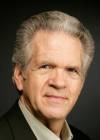 William Stone has sung extensively in the major opera houses of Europe and especially in Italy, having twice opened the May Festival in Florenceas Wozzeck and as Orestes, in Gluck'sIphigénie en Tauride under Riccardo Muti. His creation of the role of Adam for the Lyric Opera of Chicago's world premiere of Penderecki's Paradise Lost, was followed by his debut at La Scala in its European premiere and a performance at the Vaticanfor Pope John Paul II. With Sir Georg Solti, he toured with the Chamber Orchestra of Europe in the role of the Count in Le nozze di Figaro. His North American opera engagements include the Metropolitan Opera (Moses und Aron, Wozzeck, La traviata, Sly, Die Fledermaus, Romeo et Juliette, Lucia, Madama Butterfly), and title roles for over a decade at the New York City Opera, notably as the Count in Le nozze di Figaro in a Live from Lincoln Center telecast and the title role in new productions of Hindemith's Mathis der Maler, and Busoni's Doktor Faust. As a concert artist, Stone has appeared with every major orchestra in the country, including the New York Philharmonic under Kurt Masur and the Boston Symphony Orchestra with Seiji Ozawa conducting the premieres of Takemitsu's My Way of Life, and Kirchner's Of Things Exactly as They Are. His long relationship with Robert Shaw resulted in acclaimed performances of the monumental choral works and over a dozen recordings, including the two Grammy Award recordings of Hindemith's When Lilacs Last in the Dooryard Bloom'd, and Walton's, Belshazaar's Feast, and an Historic Live Performance Edition of Ein Deutches Requiem with the Cleveland Orchestra . Other recordings include The Songs and Arias of Robert Ward, and DVDs of Carnegie Hall's Performance Series of Hindemith's When Lilacs Last in the Dooryard Bloom'd, and Verdi's Falstaff with Jose van Dam. Equally at home on the recital stage, Stone considers his many performances of Wolf's Italienisches Liederbuch with Benita Valente and David Golub among the most memorable. In addition to his performing career, Mr. Stone is Professor Emeritus of Voice and Opera at Temple University, and currently is teaching on the Voice Faculty at the Academy of Vocal Arts in Philadelphia.  Chair of Slavic Languages Department at the University of Pennsylvania, Prof. Vinitsky has given guest lectures at Princeton, Harvard University, University of Chicago, Brown University, the New College (Oxford University), and Northwestern University. Ilya Vinitsky received his diploma with honor in teaching Russian Language and Literature at Moscow State Pedagogical University in 1991, took his Ph.D. (kandidat filologicheskikh nauk) in Russian Literature at Moscow State Pedagogical University in 1995, and received his PhD habilitation (doctor filologicheskikh nauk) in 2005. Teaching Experience Ilya Vinitsky has been a member of the University of Pennsylvania Faculty since Fall 2003, having joined the Department of Slavic Languages and Literatures at the rank of Assistant Professor. Before coming to Penn, he taught at Columbia University (2000) and the University of Pittsburgh (2000-2003) as a Visiting Assistant Professor. Vinitsky teaches courses focusing on literary, ideological, religious, and political issues, including “Legal Imagination: Criminals and Justice across Literature,” “Madness and Madmen in Russian Culture,” “Russian Nights: Ghosts in Russian Culture,” “From the Other Shore: Russia and the West,” and “The Haunted House: Russian Realism in European Context.” He also teaches Benjamin Franklin seminars on Tolstoy and Dostoevsky and a number of graduate courses at Middlebury College Russian Summer School. In 2010, Vinitsky received SAS Ira Abrams Award for Distinguished Teaching. Select Recent Publications: Ghostly Paradoxes: Modern Spiritualism and Russian Culture in the Age of Realism (University of Toronto Press, 2009; Rated as "Essential" by Choice Reviews") “On the whole, as I suppose, it makes sense to speak of two polar types of artistic spiritualism in literature (that is, two attempts at the ontology of the “spirit of literature”): the idea of literature as a cunning and pernicious force (“the party of the devil,” in William Blake’s words) and a relationship to it as to a live and free manifestation of spiritual life that transcends and scoffs at material reality. One may call the proponents of this idea the “party of the spirit.” A Cultural History of Russian Literature (Cambridge, UK: Polity Press, 2009; together with Andrew Wachtel) “We began this introduction to eighteenth-century Russian culture with Bishop Feofan’s eulogy to Peter the Great. We conclude with a historical anecdote which illuminates some cultural consequences of the Reform. Sometime in the early decades of the nineteenth century, the gifted satirical poet and aristocrat Petr Viazemsky (1792-1878) was visiting one of his remote estates. After a Sunday Mass, an educated (yet old-fashioned in his neoclassical literary tastes) local priest enthusiastically addressed the villagers: “You do not comprehend what kind of Master Our Lord gave you, my Orthodox brothers! He is the Russian Horace, the Russian Catullus, the Russian Martialis!” After each of these lofty attestations, as Viazemsky ironically (and sadly) comments, his pious peasants bowed to earth and vigorously crossed themselves.” Interpreter’s House: Poetic Semantics and Historical Imagination of Vasily Zhukovsky (NLO, 2006, in Russian) “Zhukovsky is the prophet not of Revolution (like the early romantics) but of Restoration (like the Biedermeier authors). His works are not products of free creativity, but of translation as an aesthetic and moral principle: “selfless obedience” and “arbitrary subjection” to the “sacred” in the original, the restoration of harmony via “struggle against the obstacle” (Viazemsky) of the chaotic word-for-word translation. It was precisely the venerable, eternal Odyssey (the mother of European poetry) that should have become the culmination of his poetic (i.e., translating) activities, the very epic (“the beginning of a new era”) that would foretell and bring about the victory of justice and order over chaos, and for that reason would prove so indispensable to the contemporary world.” Madness and the Mad in Russian Culture (Toronto University Press 2007; co-edited with Angela Brintlinger) “Following tradition, [Catherine the Great] considered melancholy a disease of sick imagination and a Western disorder, poisoning weak Russian souls. It is not an accident that among the patients of the first St. Petersburg mad asylum … were two freemasons V. Ya. Kolokol'nikov and M. I. Nevzorov. Both young scholars had just returned from abroad (commonplace melancholy travelers in the Western tradition) and both were diagnosed as hypochondriacs. Since the time of Catherine the Great this medical (psychiatric) diagnosis has been used by the Russian authorities as a simple and effective way to discredit and/or isolate their political and ideological opponents, including some of the Decembrists, Count Dmitriev-Mamonov, Pyotr Chaadaev, and Leo Tolstoy.” Vinitsky’s most representative publications include: "The Worm of Doubt: Prince Andrei's Death and Russian Spiritual Awakening of the 1860s," Anniversary Essays on Tolstoy, ed. by Donna Tussing Orwin. New York, London: Cambridge University Press, 2010, 119-36. "Krupushki zaumnoi poezii [Grains of Zaum' Poetry]", Russian Literature, 2009. Jan 1-Apr 1; 65 (1-3): 261-279. “Amor Hereos: the Occult Sources of Russian Romanticism”, Kritika: Explorations in Russian and Eurasian History. Vol. 9, No. 2 (Spring 2008). Pp. 291-316. “Table Talks: The Spiritualist Controversy of the 1870s and Dostoevsky”, Russian Review. No. 1 (2008). Pp. 88-109. “A Cheerful Empress and Her Gloomy Critics: Catherine the Great and Eighteenth Century Melancholy Controversy.” Madness and the Mad in Russian Culture. University of Toronto Press, 2007. Pp. 25-45. “The Invisible Scaffold: Execution and Imagination in Vasilii Zhukovskii's Work,” Times of Trouble. Violence in Russian Literature and Culture. Ed. by Marcus C. Levitt and Tatyana Novikov. Madison: University of Wisconsin Press, 2007. Pp. 57-69. “Where Bobok Is Buried: The Theosophical Roots of Dostoevskii's 'Fantastic Realism'”, Slavic Review. Vol. 65. No. 3 (2006). Pp. 523-43. “Russian Dead Poets Society: Spiritualist Poetry as a CulturalPhenomenon.” In: Novoe literaturnoe obozrenie (NLO) 2005, #2 (in Russian) Research Projects Vinitsky will be on leave next academic year. His research plans include writing a book on the history of poetry for children and a book on melancholy in Russian culture. |
Like us on Facebook
|
 RSS Feed
RSS Feed
